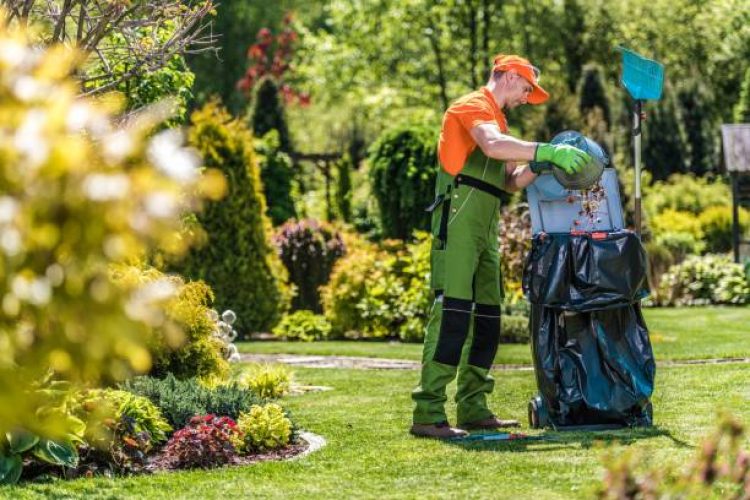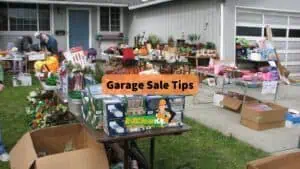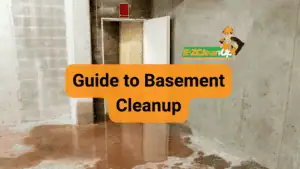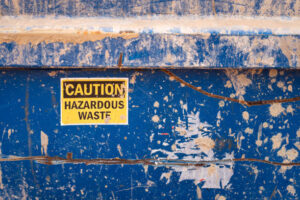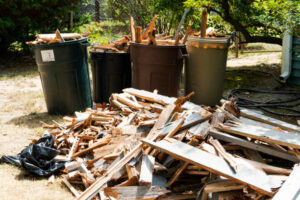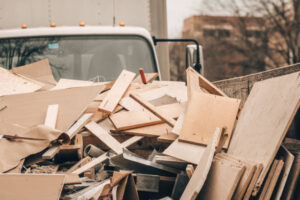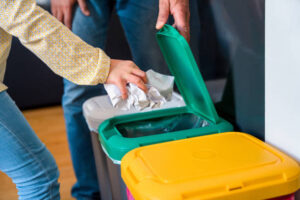Maintaining a beautiful yard in the City of Brotherly Love requires more than just regular mowing and watering. With Philadelphia’s diverse seasons and urban environment, homeowners face unique challenges when it comes to yard cleanup and debris removal. Whether you’re dealing with fallen leaves in autumn, storm damage from winter weather, or preparing your outdoor space for spring growth, knowing how to clear debris properly can make all the difference in your yard’s health and your community’s environmental impact.
Understanding Philadelphia’s Yard Waste Challenge
Philadelphia generates significant amounts of yard waste annually, contributing to the broader municipal solid waste stream. According to the EPA, yard trimmings comprised 35.4 million tons, or 12.1 percent of total generation, in 2018 nationwide, making it one of the largest categories of municipal waste. In Philadelphia specifically, residents can drop off oversized trash, yard waste, recycling, and other items at six transfer stations around the city, highlighting the city’s commitment to proper waste management.
The environmental impact of improper yard waste disposal cannot be overstated. When organic materials like leaves, grass clippings, and branches end up in landfills, yard waste accounts for a significant portion of landfill debris. When improperly disposed of, this organic material can produce methane gas as it breaks down, contributing to greenhouse gas emissions.
The Cost of Professional Yard Cleanup in Philadelphia
Before diving into DIY solutions, it’s important to understand the financial landscape of professional yard cleanup services. Yard cleanup costs an average of $360, and most homeowners pay between $200 and $600 for the service, depending on lot size and how much debris you need removed. For Philadelphia homeowners, these costs can vary based on several factors:
Factors Affecting Cleanup Costs
Property Size: A quarter-acre yard cleanup costs between $200 to $500, while a full-acre cleanup totals between $850 and $1,100. Most Philadelphia properties fall within the smaller range, making professional services more affordable for urban homeowners.
Seasonal Timing: Fall cleanups are twice as expensive as spring cleanups because your professional must remove leaves. This is particularly relevant in Philadelphia, where mature trees throughout the city drop substantial amounts of leaves each autumn.
Service Frequency: One annual visit will cost an average of $360, quarterly contracts will cost about $500 a year, and monthly cleanups will cost just $600 a year. Regular service contracts often provide better value for Philadelphia homeowners who want to maintain their properties year-round.
Philadelphia’s Municipal Yard Waste Programs
The City of Philadelphia has established several programs to help residents manage yard waste responsibly. Understanding these options is crucial for proper debris disposal.
Sanitation Convenience Centers
If you live in Philadelphia, you can drop off oversized trash, yard waste, recycling, and other items at six sanitation convenience centers around the city. All six sanitation convenience centers are open Monday through Saturday, from 8 a.m. to 6 p.m. These centers provide a convenient option for residents who prefer to handle their own yard waste transportation.
Seasonal Leaf Collection
Philadelphia operates a comprehensive leaf recycling program. The 2024 Philly Leaf Recycling Program begins Monday, November 4, and ends Saturday, December 21, 2024. During the seven-week program, you can drop off bagged leaves at 13 locations across the city during the scheduled times.
The program has specific requirements: Residents must place leaves in large brown biodegradable paper bags. Yard waste (such as brush and tree limbs) will not be accepted. The department takes collected leaves to the Fairmount Park Organic Recycling Center. Small quantities of the resulting compost and mulch are available for free to Philadelphia residents.
Environmental Benefits of Proper Yard Waste Management
Proper yard waste disposal contributes significantly to environmental sustainability. EPA analyzed information from state composting programs to calculate the composting of yard trimmings. This analysis resulted in an estimate of 22.3 million tons of yard trimmings composted or wood waste mulched in 2018 with a 63 percent composting rate.
The environmental advantages extend beyond waste reduction. You reduce the volume of materials that might otherwise be disposed of in landfills or trash incinerators – leaves, grass clippings, yard trim, and food scraps – and prevent powerful greenhouse gases from being emitted into the atmosphere.
Eco-Friendly Yard Debris Disposal Methods
Composting: The Gold Standard
Composting represents the most environmentally beneficial method for yard waste disposal. Composting is one of the most sustainable ways to manage yard waste. It recycles organic material into a nutrient-rich soil additive that can transform your garden.
The EPA provides comprehensive guidance for home composting. Composting involves minimal effort, equipment, expense, and expertise and can be fun. You save money by producing a free, high-quality soil amendment – compost – which reduces your use of fertilizer and pesticides.
Setting Up Your Compost System
Set aside space for your compost pile and build or buy a bin. Choose a space in your yard for your compost pile that is easily accessible year-round and has good drainage. The composting process requires a balance of materials: Browns: These include leaves, straw, cardboard, and wood chips. They are rich in carbon and help balance the compost, ensuring it doesn’t become too wet or smelly. For a healthy compost pile, aim for a mix of about 2 parts browns to 1 part greens.
Benefits Beyond Waste Reduction
According to the EPA, composting can reduce yard waste volume by up to 50% while improving soil moisture retention and reducing the need for chemical fertilizers. For Philadelphia homeowners, this translates to significant long-term savings on landscaping costs while contributing to environmental sustainability.
Mulching and Natural Recycling
Another effective method involves converting yard waste into mulch. Mulch not only improves the aesthetic quality of your garden or landscape, but it protects bare soil from erosion, helps to retain moisture and provides temperature regulation for roots. The best way to create home-grown mulch is to put branches and old trees into a woodchipper.
For grass clippings, grass clippings protect your soil and, when decomposed, enrich the soil with vital nutrients that keep your lawn healthy. Simply leave the clippings on the lawn after mowing.
Creative Repurposing
Philadelphia homeowners can explore innovative ways to reuse yard debris. Branches, brush, leaves, and other yard waste are great materials to add bulk when creating or filling raised garden beds or making mounds on which to plant things like pumpkins, squash, and melons. Fill the bottom of the bed with the yard waste and top it off with soil and compost. Over time, the branches and brush will break down and release nutrients into the soil which is great for plants.
Professional vs. DIY: Making the Right Choice
When to Choose Professional Services
Professional yard cleanup services offer several advantages, particularly for Philadelphia’s urban environment. Professionals have the knowledge and experience to handle different types of yards and landscaping needs. They know the best techniques to use, which can prevent damage to your plants and ensure that every part of your yard is well-cared-for. Equipped with high-grade, commercial tools, professionals can complete the job much faster than you could on your own. What might take you an entire weekend can often be done by a professional team in a few hours.
DIY Considerations and Costs
For homeowners who prefer the hands-on approach, many homeowners clean up their own yards rather than hire a pro. Doing the work yourself can save you an average of $360 after the initial investment in tools.
Basic equipment costs include: If you decide to tackle the yard cleanup yourself, you’ll need some essential tools. The total cost for these essential items can add up to about $446. However, while you’ll save money on labor by doing your own yard cleanup, the job can be labor-intensive and time-consuming. Hiring someone to do yard work like cleanups will save you time and effort, and a local leaf removal service can clear your yard in just a few hours rather than taking you the entire weekend.
Seasonal Yard Cleanup Strategies for Philadelphia
Spring Preparation
Spring cleanup focuses on preparing your yard for the growing season. Spring cleaning for landscaping involves a thorough yard cleanup to prepare your outdoor space for the growing season. This includes: Removing leaves and debris: Clearing out dead leaves, branches, and other debris that accumulated over the winter. Pruning and trimming: Cutting back overgrown bushes and trees to promote healthy growth. Lawn care: Mowing, aerating, and fertilizing the lawn to encourage thick, green grass. Garden bed preparation: Cleaning out flower beds and adding fresh mulch to improve soil quality and appearance.
Fall Management
Philadelphia’s abundant tree canopy creates significant leaf management challenges each fall. Most homeowners do a full yard cleanup twice a year: once in spring to prepare for new growth after winter and once in the fall to remove fallen leaves.
Safety Considerations for Yard Cleanup
Safety should always be a priority when handling yard debris. Wear long sleeves, pants and sturdy shoes when removing yard waste. Use the appropriate tools for the job you’re completing. Wear protective eyewear and hearing protection when using power equipment. Drink plenty of water during warm weather to avoid overheating and dehydration. Avoid handling chemicals and fertilizers.
What Not to Do: Common Mistakes in Yard Waste Disposal
Avoiding Harmful Practices
It releases harmful pollutants into the air and often violates local fire regulations. Instead, opt for more eco-friendly methods like composting or using curbside collection services. Burning yard waste is particularly problematic in Philadelphia’s urban environment, where air quality and fire safety regulations are strictly enforced.
Proper Material Handling
It’s illegal to dump yard waste in most areas because it can negatively impact the environment by damaging native plants, lowering soil quality and spreading invasive plant species. Make sure you only dump yard waste in approved areas.
The Future of Yard Waste Management in Philadelphia
Philadelphia is part of a broader movement toward sustainable waste management. Philadelphia cares a lot about construction and demolition waste disposal and recycling because of the significant part it takes in the city’s solid waste stream. Philly is doing its very best to reach its ‘2035 Zero Waste and Litter’ ambitious goal, which includes comprehensive organic waste management strategies.
Building Community Through Proper Yard Care
Proper yard maintenance contributes to neighborhood pride and property values throughout Philadelphia. Block captains organize cleaning and beautification efforts for their block, demonstrating how individual yard care efforts contribute to community-wide improvements.
Conclusion: Your Role in Philadelphia’s Green Future
Effective yard cleanup in Philadelphia requires understanding local resources, environmental impact, and proper disposal methods. Whether you choose professional services averaging $318 for a standard yard cleanup, with the price range between $174 and $436, depending on various factors such as yard size, the extent of cleaning needed, and local labor rates, or tackle the job yourself, the key is implementing sustainable practices that benefit both your property and the broader Philadelphia community.
By utilizing the city’s yard waste programs, embracing composting and mulching, and avoiding harmful disposal methods, Philadelphia residents can maintain beautiful yards while contributing to the city’s environmental goals. Remember that yard waste pickup benefits the community by diverting millions of pounds of organic waste from landfills annually through composting, making your individual efforts part of a larger environmental impact.
The path forward involves combining the convenience of Philadelphia’s municipal programs with the environmental benefits of home composting and creative reuse. As the city works toward its 2035 zero waste goals, every properly managed yard contributes to a cleaner, greener Philadelphia for future generations.

